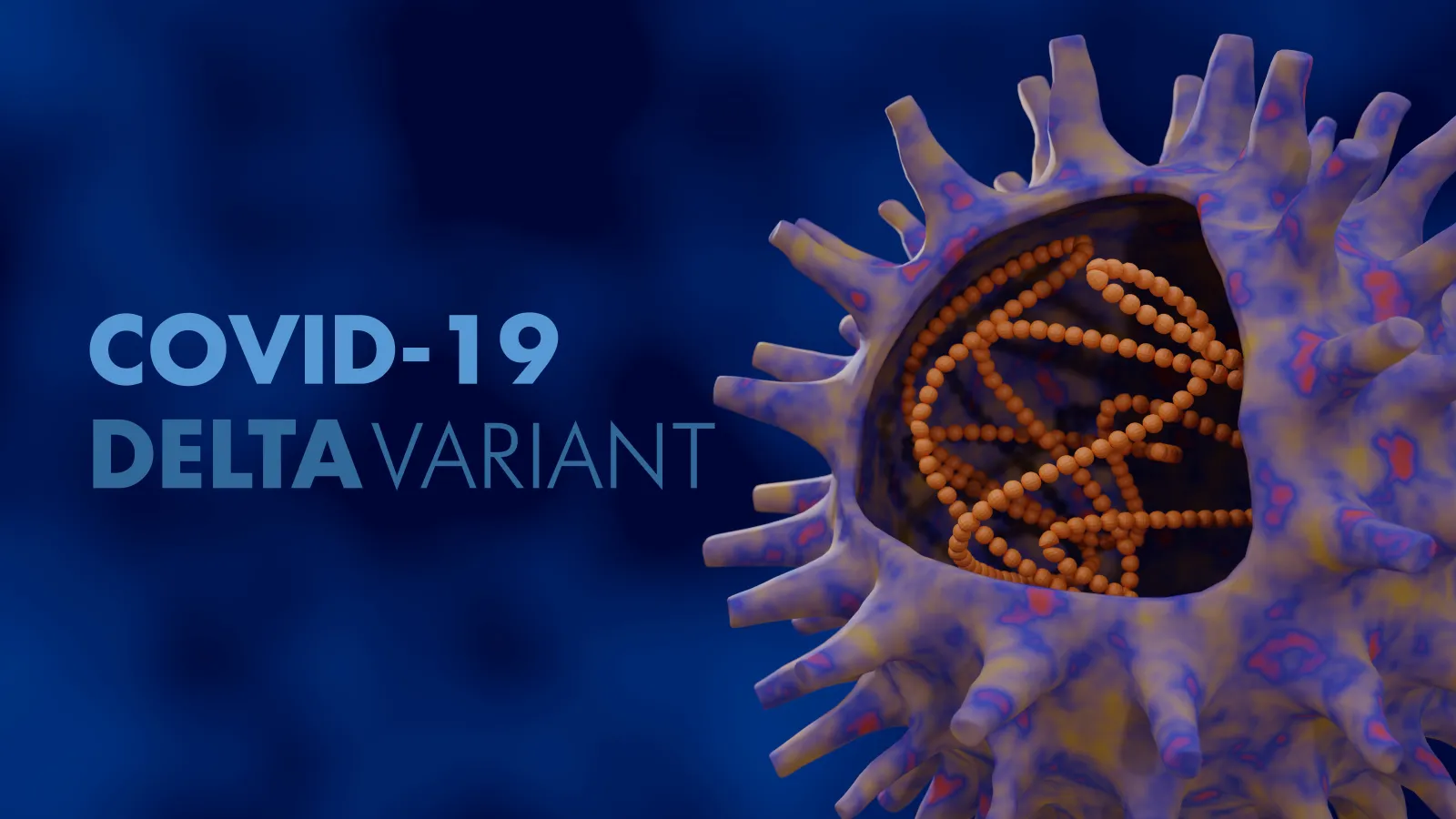
Viruses constantly change through mutation and become more diverse. These mutations, or variants, are commonly expected to occur with viruses. Sometimes, new variants emerge and disappear. Other times, new variants persist.
Scientists monitor these changes, including changes to the spikes on the surface of the virus. By carefully studying viruses, scientists can learn how changes to the virus might affect how it spreads and how sick people will get from it.
Think about a virus like a tree growing and branching out; each branch on the tree is slightly different than the others. By comparing the branches, scientists can label them according to the differences. Some variations allow the virus to spread more easily or make it resistant to treatments or vaccines. Those variants must be monitored more carefully.
Multiple variants of the virus that causes COVID-19 have been documented in the United States and globally during this pandemic. These variants have been continuously studied and identified since the beginning of the pandemic. The main variant making headlines in the U.S. currently is B.1.617.2, more commonly known as the Delta variant.
The Delta variant was first detected in the United States in March 2021. It was initially identified in India in December 2020 and makes up nearly 85% of COVID-19 cases currently in the U.S.
Here are five things you need to know about the Delta variant:
1) Delta is more contagious than the other strains.
In June, the CDC released date that stated the Delta variant was 50% more contagious than the original COVID-19 strain (Alpha) and thus, is spreading twice as fast. For example, in an environment where no one is vaccinated or wearing masks, the average person infected with the original strain would infect 2-2.5 other people. In the same environment, Delta will spread from one person to 3.5-4 people.
2) Unvaccinated people are at risk.
In the U.S., there is a disproportionate number of unvaccinated people in Southern and Appalachian states including Tennessee, Alabama, Arkansas, Georgia, Mississippi, Missouri, and West Virginia, where vaccination rates are low. With the little or no restrictions in place in many of these states, the number of cases is rising rapidly.
Younger people are at a much higher risk of infection with the Delta variant. A recent study showed that children and adults under 50 are 3.5 times more likely to get infected. With no approved vaccine for individuals under 12 years of age, this makes the Delta variant extremely dangerous for children.
3) "Hyperlocal outbreaks" could overwhelm the healthcare system.
If Delta continues to move fast enough to accelerate the pandemic, the two biggest questions will be: how many people will get the Delta variant and how fast will it spread? The answers will depend, in large part, on how many people in specific locations are vaccinated.
For example. a low-vaccination town that is surrounded by high-vaccination areas could end up with the virus contained within its borders, resulting what is called a "hyperlocal outbreak," compressing large numbers of cases into a shorter period of time. While the shorter time frame seems to be a positive, hyperlocal outbreaks can easily overwhelm local health care systems.
4) There is still much to learn about the Delta variant.
One important question is whether the Delta strain will make you sicker than the original virus. Early information about the severity of Delta has shown the Delta variant was about twice as likely as Alpha to result in hospitalization in unvaccinated individuals, but other data has shown no significant difference.
Another question focuses on how Delta affects the body. There have been reports of symptoms that are different than those associated with the original coronavirus strain. Unlike the original strain, cough and loss of smell are less common with the Delta variant, while headache, sore throat, runny nose, and fever are present.
Breakthrough cases are also being studied closely. Breakthrough cases are defined as infections from the Delta variant in people who have been vaccinated or have natural immunity from a prior COVID-19 infection. In early studies, the Pfizer-BioNTech vaccine was 88% effective against symptomatic disease and 96% effective against hospitalization. Moderna has also reported on studies that show its vaccine to also be effective against the Delta variant when compared to its effectiveness against the original strain. All of this information leads to our final point:
5) Vaccination is the best protection against Delta.
The most important thing we can do to protect ourselves from Delta is to get fully vaccinated. At this point, that means if an individual gets a two-dose vaccine like Pfizer or Moderna, for example, he or she must get both shots and then wait the recommended two-week period for those shots to take full effect.
Of course, there are many people who cannot get the vaccine because their doctor has advised them against it for health reasons or because personal logistics or difficulties have created roadblocks—or they may simply choose not to get it. But for those who are unvaccinated and eligible for the vaccine, the most effective way to protect against the Delta variant is to get vaccinated.
Summit Medical Group currently offers the vaccination at most of our locations (including the Summit Express Clinics) and is available for all individuals 12 years of age and older. Please reach out to your Summit provider for more details about vaccine location and availability or contact your local health department for more information.
